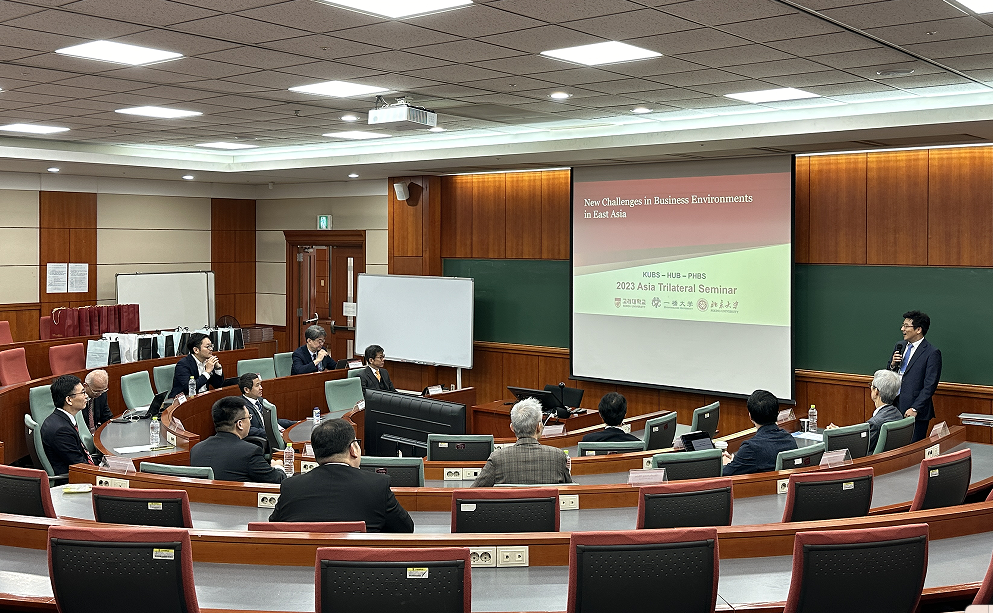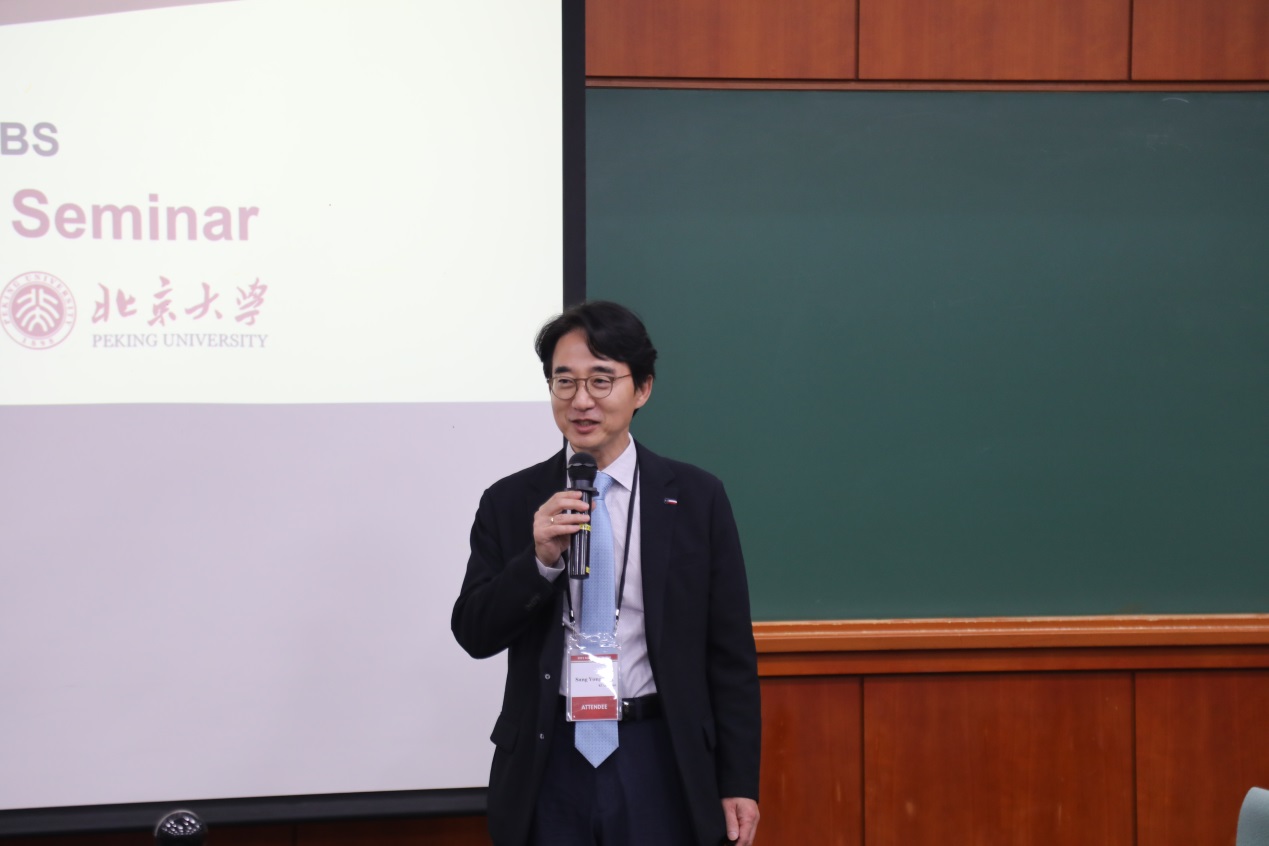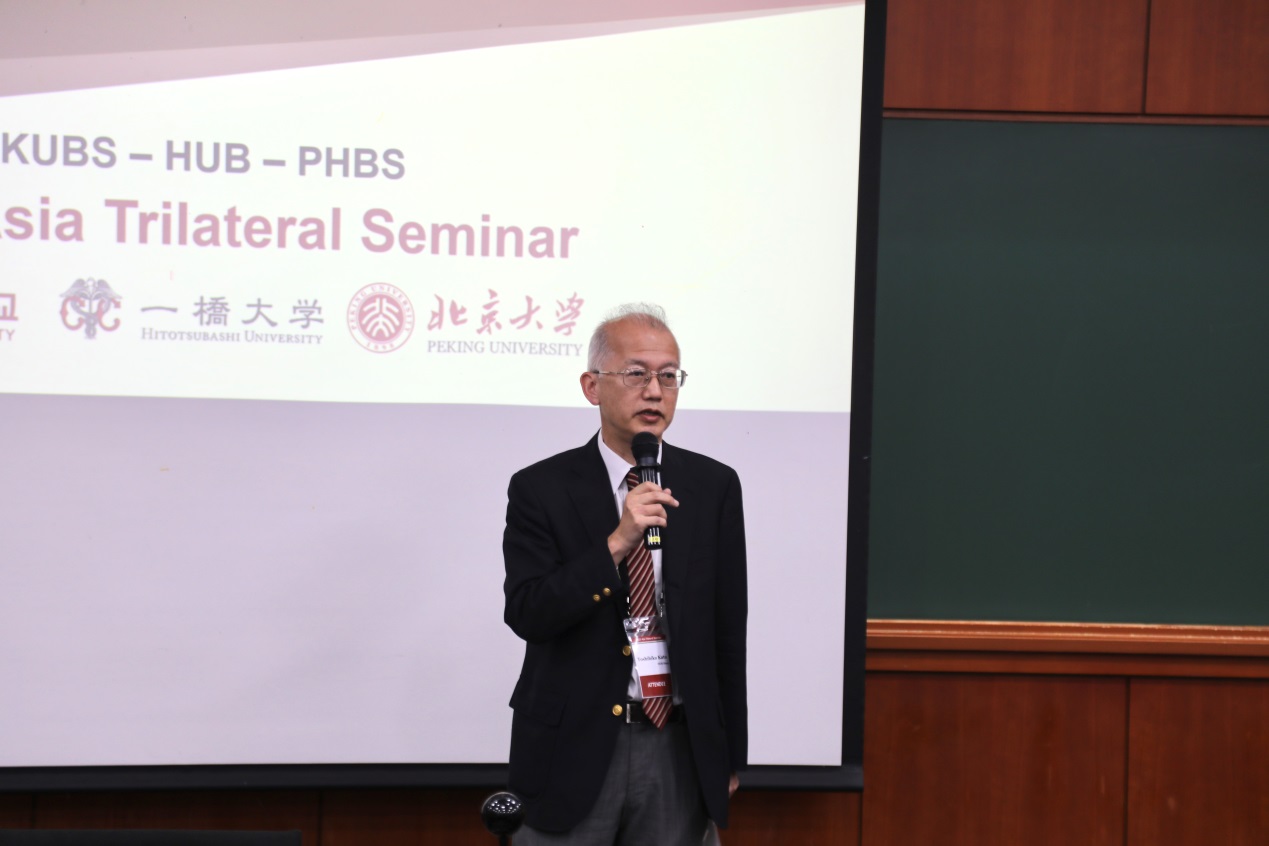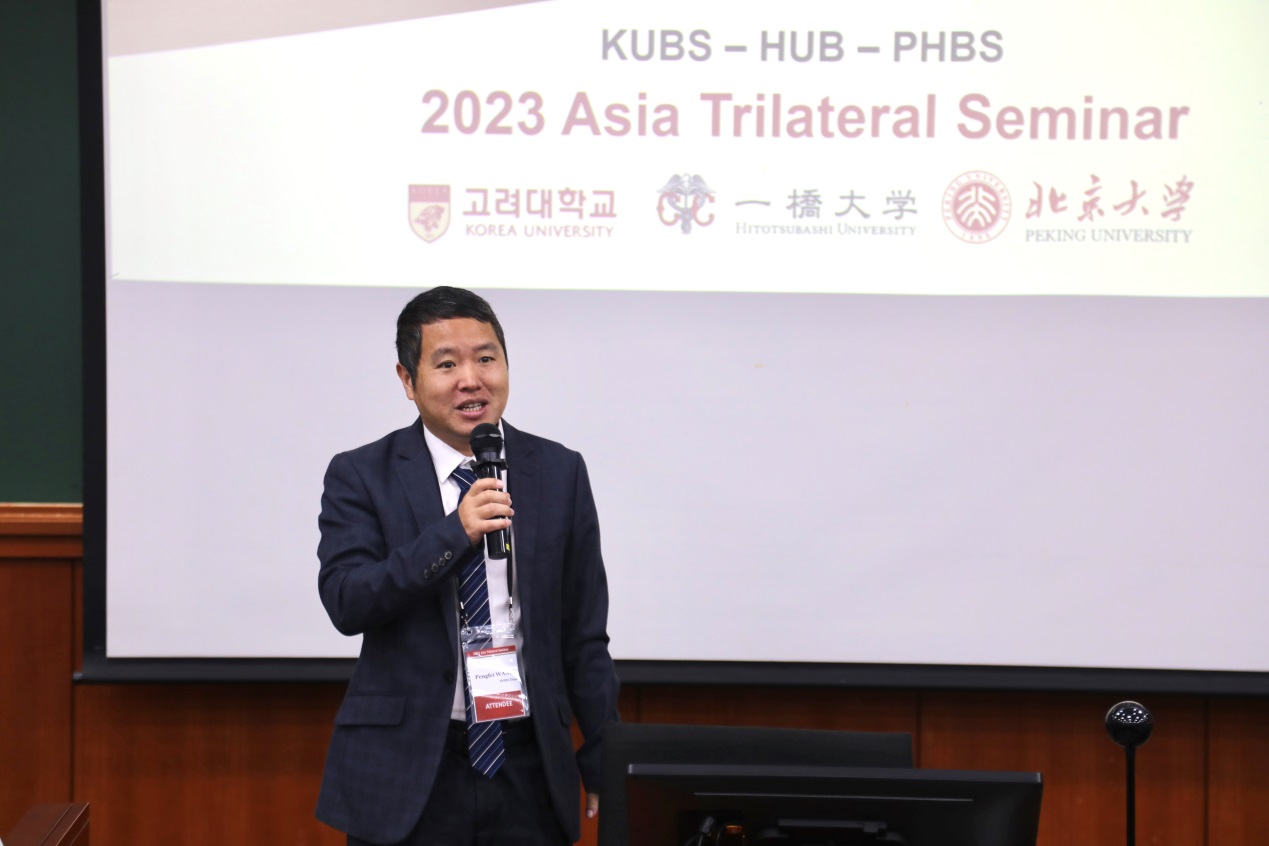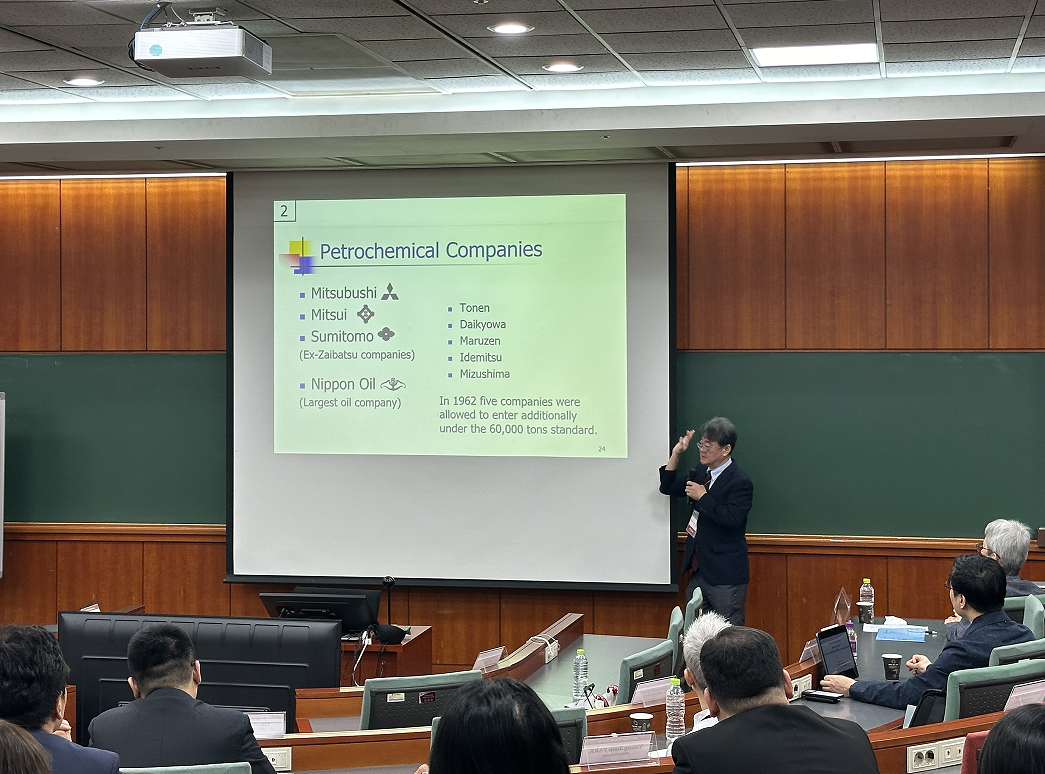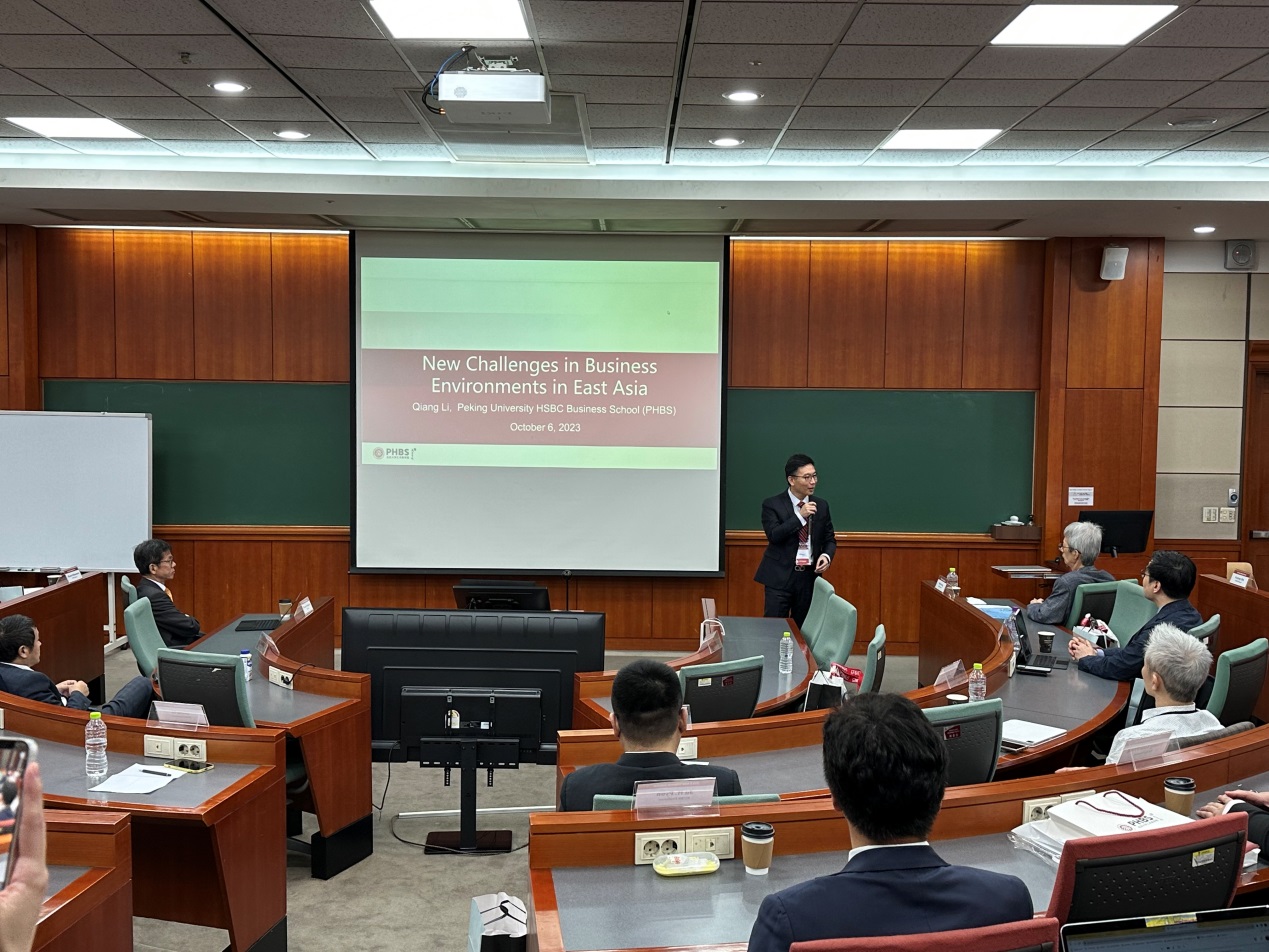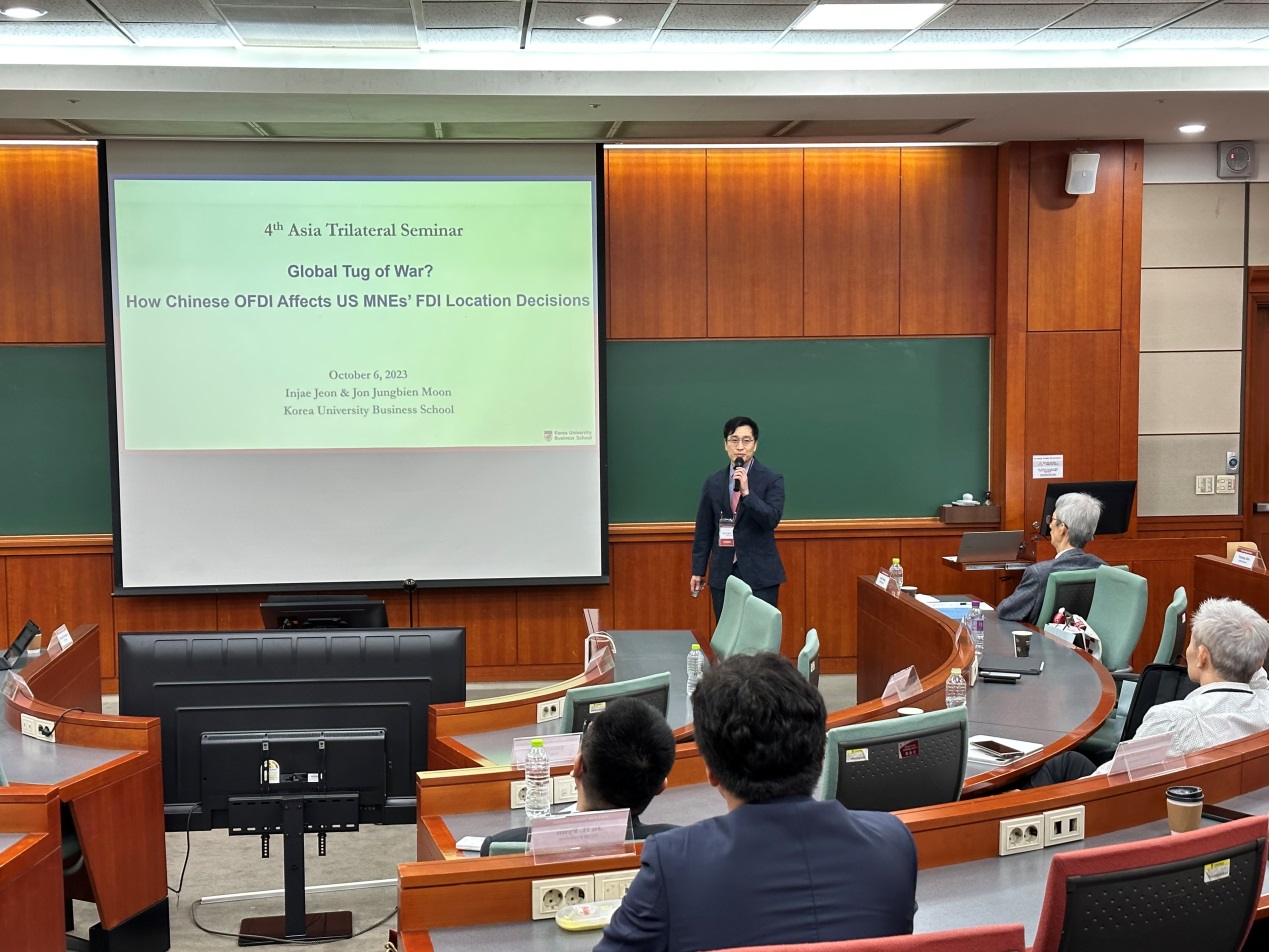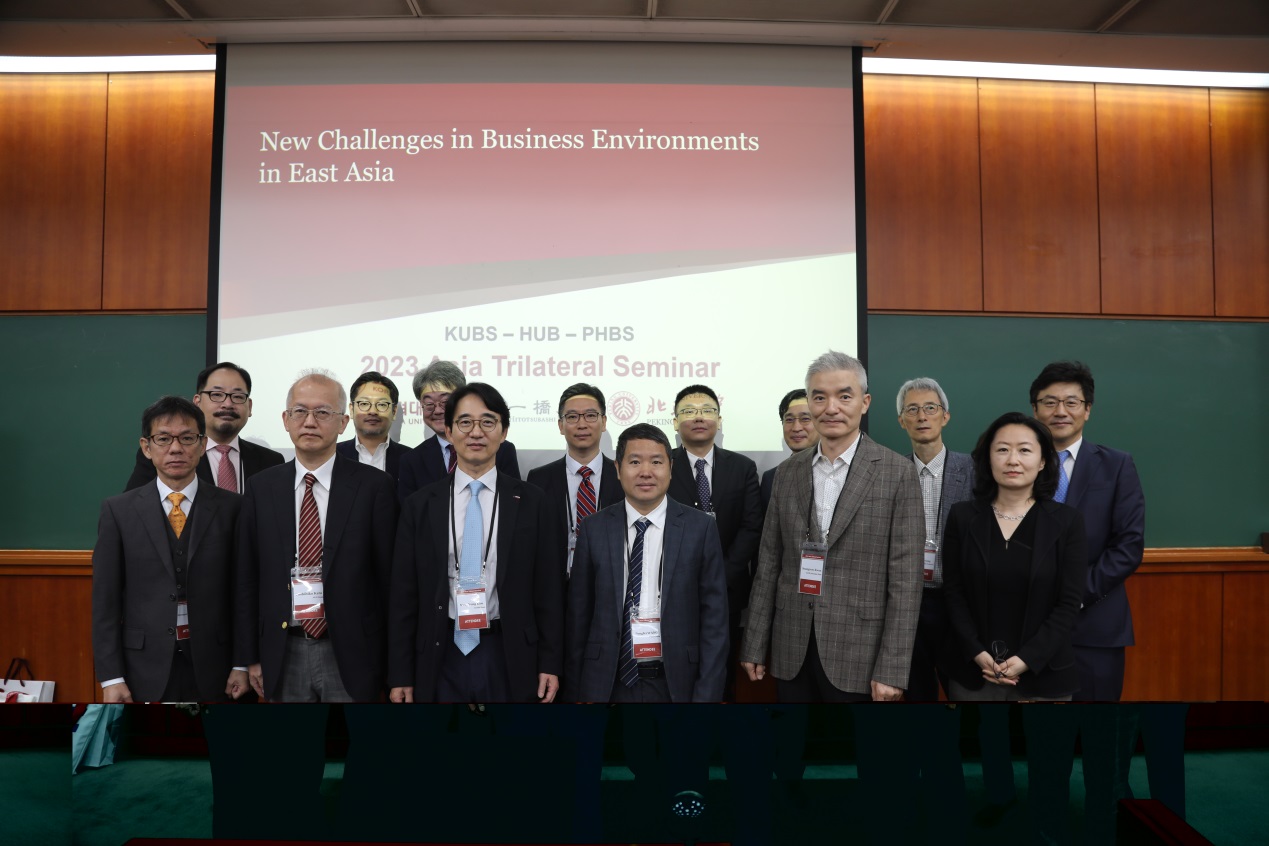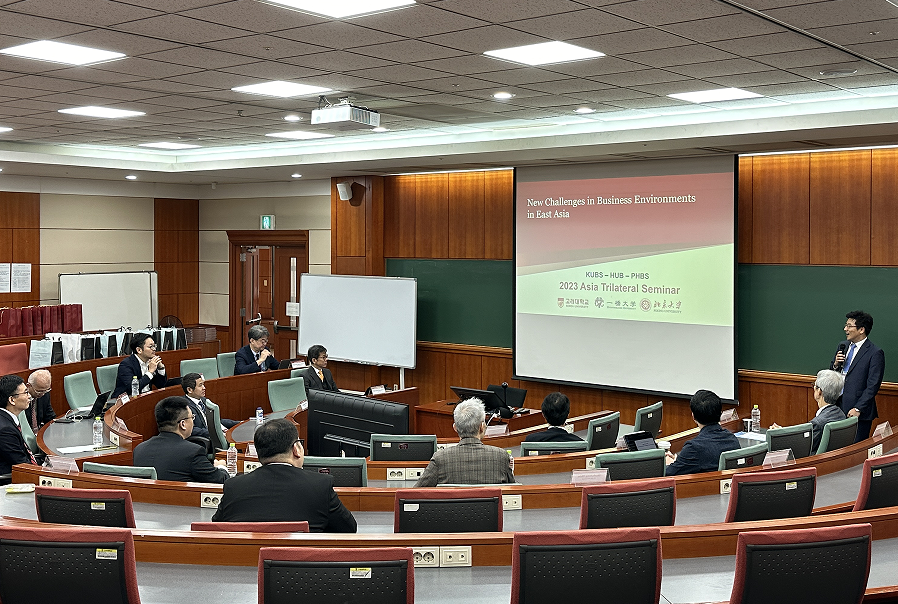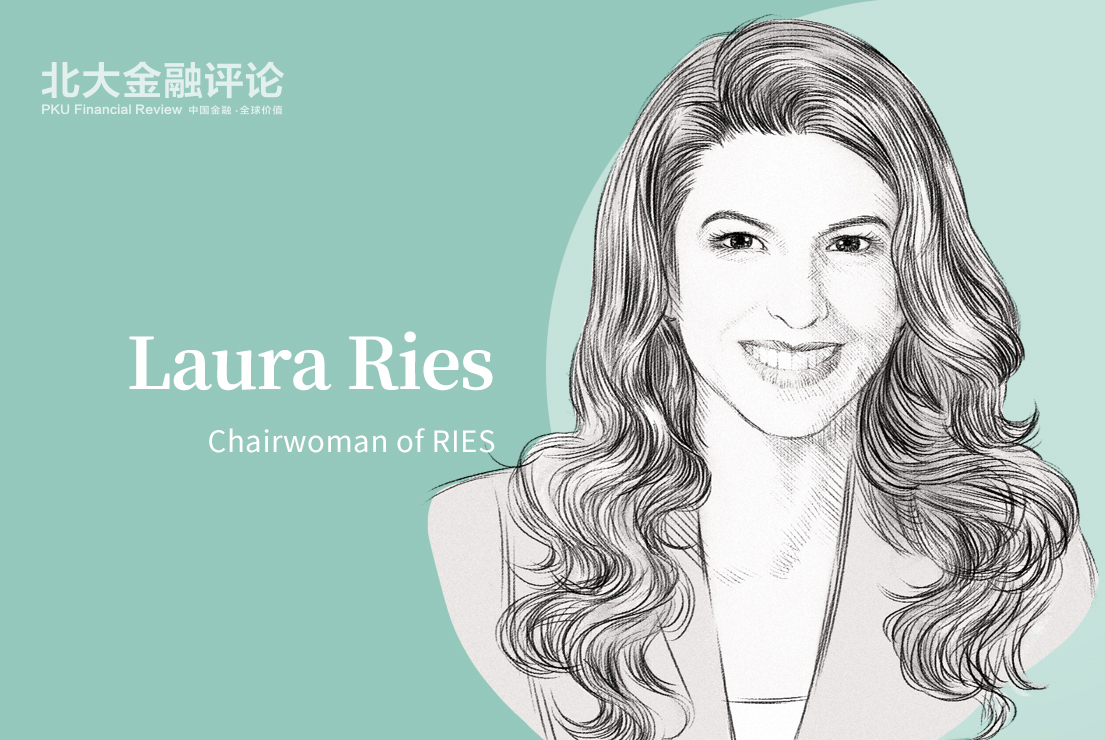As the business landscape has undergone significant changes, what kind of challenges will be on the horizon? How can economies better embrace business trends and navigate complex policies? Earlier this October, the 2023 Asia Trilateral Seminar was held at Korea University Business School (KUBS) with the theme "New Challenges in Business Environments." Initiated in 2017, the Asia Tri-lateral Seminar has been organized annually by three leading business schools: Korea University Business School (KUBS), Hitotsubashi University Business School (HUB), and Peking University HSBC Business School (PHBS).
Scholars attend the 2023 Asia Trilateral Seminar
This year's seminar featured three keynote addresses, open discussions, and a Q&A session, ranging from industrial policies, business environments, and foreign direct investment. Scholars and researchers from China, Korea, and Japan converged to discuss topics related to challenges facing the business ecosystem and analyze critical issues in current business trends.
KUBS Dean Sang Yong Kim
HUB Dean Toshihiko Kato
PHBS Dean Wang Pengfei
KUBS Dean Sang Yong Kim, HUB Dean Toshihiko Kato, and PHBS Dean Wang Pengfei delivered opening remarks. They emphasized the seminar's aim to facilitate international dialogue and research among the three business schools.
Professor Minoru Shimamoto
HUB Professor Minoru Shimamoto spoke "Unintended Consequences of Industrial Policy: Lessons from Japanese Business History." His study examined the aircraft, petrochemical, and mainframe-computer industries to delineate why some of Japan's industrial policies succeeded, and some failed during the rapid growth period. He pointed out that the computer industry could show how the government can allow the visible and invisible hands to coexist and function effectively.
PHBS Professor Li Qiang
PHBS Professor Li Qiang provided insights into "New Challenges in Business Environments in East Asia," ranging from geographical tensions, social challenges, environmental challenges, cybersecurity, and public health to innovation and entrepreneurship. He pointed out there will probably be two global supply chains in the future, creating uncertainty for businesses concerning which chain they will participate in, as China promotes indigenous innovation and builds its entire supply chain free of US technologies.
KUBS Professor Jon J. Moon
KUBS Professor Jon J. Moon presented his paper "Global Tug of War? How Chinese OFDI affects US MNES' FDI." Professor Jon investigated US multinational enterprises' (MNEs) foreign direct investment (FDI) location choices in response to Chinese outbound FDI (OFDI) and rising US-China geopolitical tensions. His study shows that US MNEs prefer countries with higher Chinese OFDI. However, factors like the Belt and Road Initiative, US hardline policies, and the industry's strategic importance negatively moderate this relationship. Those research findings could provide theoretical and practical implications for navigating the complex international business environment marked by geopolitical dynamics.
Discussants HUB Professor Wataru Uehara, PHBS Professor Tang Yinuo, and KUBS Professor Jeong Insik provided comments and suggestions on three keynote speeches. In the Q&A session, participants from China, South Korea, and Japan raised questions about technological impacts, government regulations, and the business environment.
Group photo of the attendees
By Annie Jin





